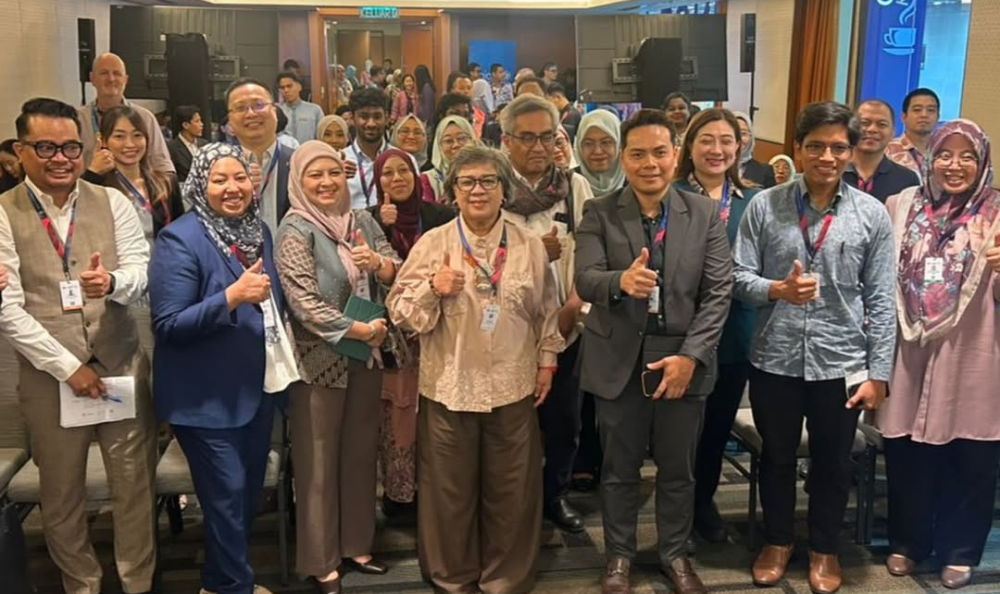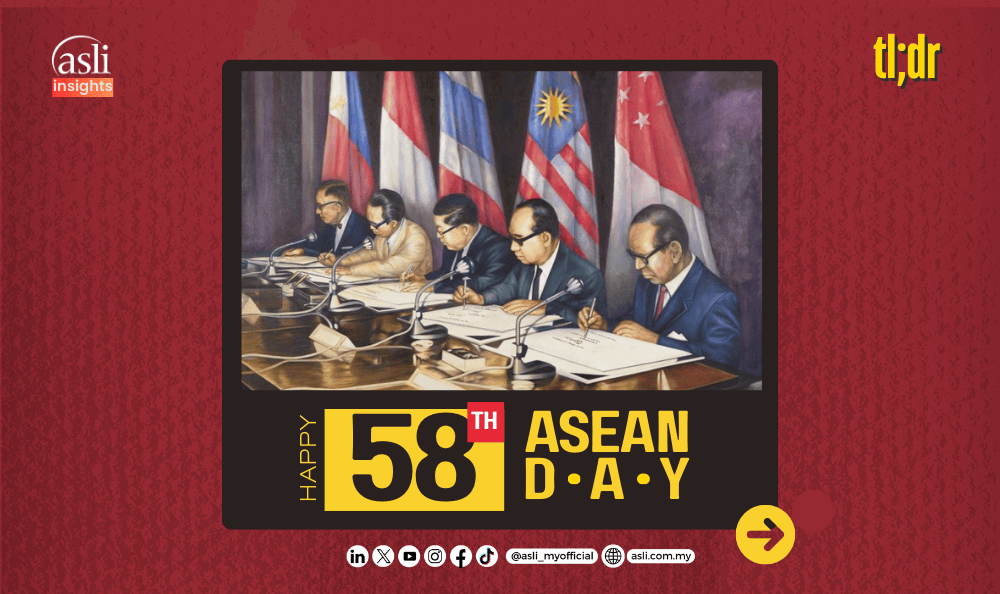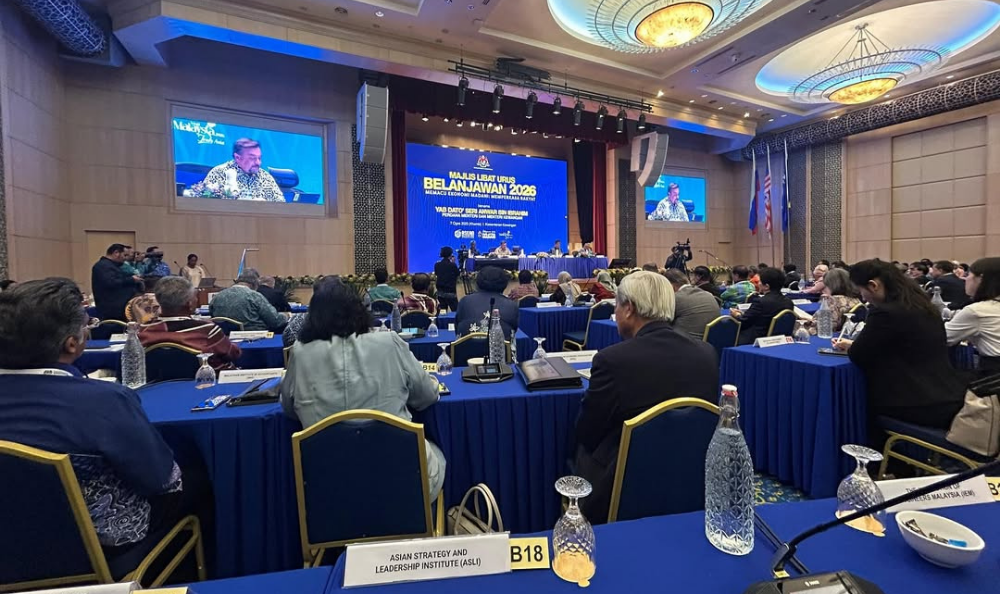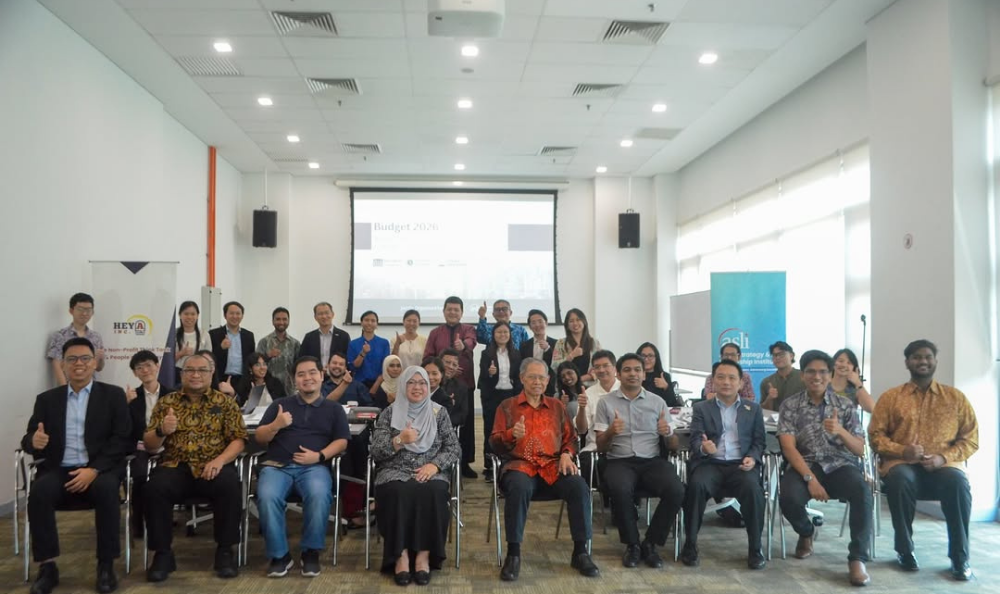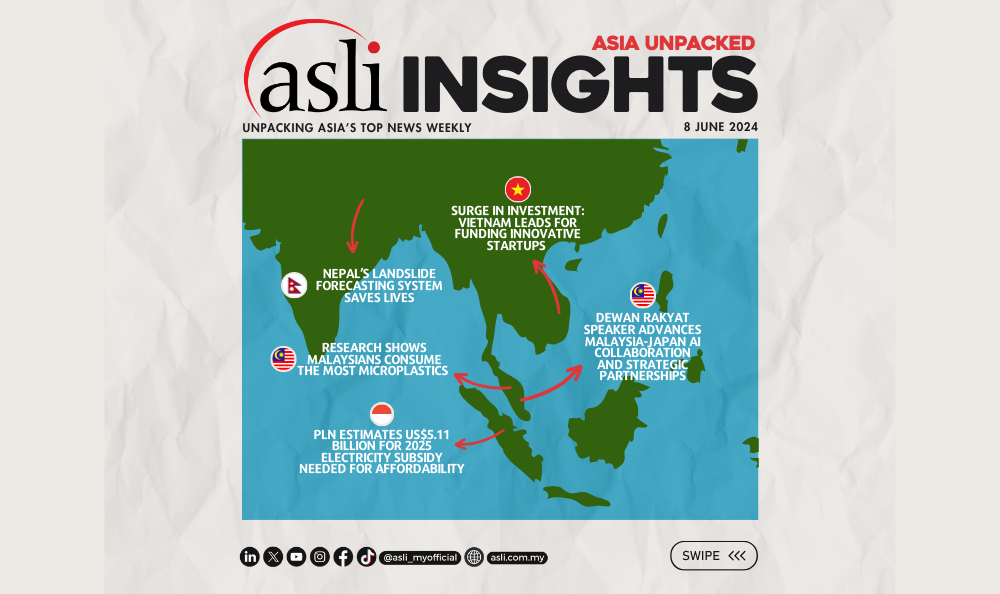
ASLI INSIGHTS: Asia Unpacked | 8 June 2024
This week's Asia top news from ASLI:
1) PLN Estimates US$5.11 Billion for 2025 Electricity Subsidy Needed for Affordability
Indonesia's state-owned electricity company Perusahaan Listrik Negara (PLN) expects the government to spend 83 trillion IDR (US$5.11 billion) in 2025 to keep electricity prices stable, a nearly 10% increase from this year. This estimate is based on rising oil prices and exchange rate assumptions in the draft state budget, which includes an inflation rate of 1.5% to 3%. Most of the subsidy, 54 trillion IDR, will go to the household sector, with additional funds allocated to social, corporate, and industrial sectors. The government may cut energy subsidies next year to create fiscal space for new policies as the new administration takes power.
Read more:
- https://www.thestar.com.my/aseanplus/aseanplus-news/2024/06/03/indonesia-says-us511bil-expected-to-spend-on-electricity-subsidy-in-2025
- https://www.thejakartapost.com/business/2024/06/01/electricity-subsidy-to-cost-rp-83-trillion-in-2025-pln-estimates.html
2) Surge in Investment: Vietnam leads for Funding Innovative Startups
The rapid growth of innovative start-ups in Vietnam is attracting significant domestic and foreign investment, as highlighted at the "Investment Policies for Start-ups" seminar in Hanoi. Vietnam hosts about 3,800 start-ups, with notable companies like Momo, VNG, and VNLife valued over $1 billion. As part of Southeast Asia's start-up golden triangle, Vietnam combines top tech talent and a robust innovation culture. Access to capital is crucial, supported by Decree No 38/2018/ND-CP, which fosters investment funds for start-ups. Despite a recent slowdown in venture capital activities, Vietnam's start-up ecosystem is maturing, with expectations of an 83% increase in investment by 2025-2030. To maximise opportunities, developing transparent investment fund models and a safe investment environment is essential.
Read more:
3) Research Shows Malaysians Consume the Most Microplastics
A recent study published in the Environmental Science and Technology journal reveals that Malaysia tops the list among 109 countries in microplastic consumption, with an average intake of 502.3mg per capita daily. More than half of this consumption comes from fish. Malaysia also ranks among the top 10 countries globally in inhaling microplastic particles, estimated at 494,000 particles per capita daily. The study identifies rapidly industrialising nations like Indonesia, Malaysia, the Philippines, and Vietnam as leading in global microplastic uptake, primarily due to high seafood consumption. The study highlights the pervasive presence of microplastics in freshwater and marine environments, driven by industrial development and plastic pollution. They emphasise the urgent need for governments worldwide to implement advanced water treatment and solid waste management practices to mitigate the health risks associated with microplastic pollution.
- Read more:
https://www.thestar.com.my/news/nation/2024/06/05/our-alarming-plastic-diet#:~:text=PETALING%20JAYA%3A%20Malaysia%20ranks%20the,of%20microplastics%20daily%20per%20capita - https://www.scmp.com/news/asia/southeast-asia/article/3265411/malaysia-eats-more-plastic-every-day-108-other-countries-study-finds
4) Nepal’s Landslide Forecasting System Saves Lives
Scientists from Australia, Italy, and Nepal, with support from their respective governments, have collaborated to develop SAFE-RISCCS, an advanced artificial intelligence system aimed at predicting landslides in Nepal. Utilising satellite imagery from NASA, ESA, and JAXA, the system continuously analyses ground motion data to forecast landslide risks, particularly crucial in Nepal's landslide-prone regions. Led by Professor Antoinette Tordesillas from the University of Melbourne, the initiative aims to enhance early warning systems, protecting vulnerable communities, especially women, children, and the elderly, from the devastating impacts of landslides triggered by heavy rains and seismic activities. Through partnerships with Nepal's disaster management authorities, SAFE-RISCCS will be integrated into Landslide Early Warning Systems, contributing to disaster preparedness and risk reduction efforts in the region.
Read more:
5) Dewan Rakyat Speaker Advances Malaysia-Japan AI Collaboration and Strategic Partnerships
Dewan Rakyat Speaker Tan Sri Johari Abdul met with Japan's Minister of Digital Transformation, Kono Taro, to discuss mutual exchange of expertise in developing AI technology. They emphasised the need for cooperation to ensure ethical and safe AI use, addressing issues like scams, cyberattacks, and fake news. Johari highlighted Malaysia's efforts, including the establishment of an AI faculty as directed by Prime Minister Datuk Seri Anwar Ibrahim. Taro expressed interest in collaborating to develop technology for identifying fake videos. Johari's visit aims to strengthen parliamentary relations following the enhancement of Malaysia-Japan ties to a Comprehensive Strategic Partnership in December 2023 and to enhance ASEAN-Japan cooperation in areas like food security, climate change, and sustainable development ahead of Malaysia's chairmanship of the ASEAN Inter-Parliamentary Assembly (AIPA) in 2025. The visit includes stops in Tokyo, Kyoto, and Osaka.
Read more:
- https://www.bernama.com/en/general/news.php?id=2305280
- https://www.bernama.com/en/general/news.php?id=2303478
Stay tuned for more top news in Asia handpicked by ASLI and for our curated weekly roundup!
🌍 Empowering Leaders, Advancing Societies.
